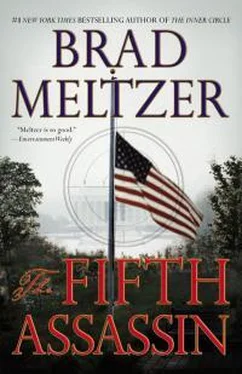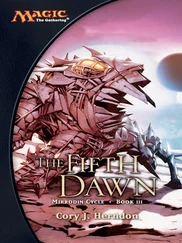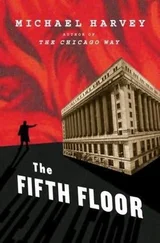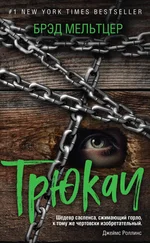I stay silent, staring at the red taillights of the cars in front of us. But all I see is the hollow smile on Marshall’s face as he made his joke about killing the President with a steak knife.
“He had your name in his pocket for a reason, Beecher. And he wears those gloves for a reason. Now your prints are the ones all over that Lincoln mask. So in case you hadn’t realized it, when it comes to any murder, even the worst hunters know the benefits of bringing along a fall guy.”
“I hear you, Tot. And I appreciate the warning.”
“Can I ask you a different question?” Tot interrupts. “I know I know the answer to this, but if Marshall was trying to kill the President, you sure you’re ready to stop him?”
“Excuse me?”
“I’m just saying, we all know how you feel about President Wallace. So with this second pastor that was shot at Foundry Church… First we had John Wilkes Booth… now Charles Guiteau… This isn’t just a single act anymore. It’s a pattern of dead Presidents. So tell me, Beecher: If that pattern kept going toward our current President—”
“Who said that’s where it’s going?”
“You telling me it’s not? Someone just meticulously re-created two assassinations,” he says, his voice getting slower. “And there are only two more presidential assassinations to imitate. So. If this is going where we both think it’s going, and it led to President Wallace having a steak knife at his throat, would you really want to stop it?”
“Would you’ve really picked me if you didn’t know the answer?”
“I said I knew the answer. I’m just trying to get you ready,” he says, his voice more serious than I’ve ever heard him. “I know the President is a piece of garbage, and I hate him just as much as you do, but this is what we do in the Culper Ring, Beecher. Whatever our feelings, we protect the Presidency.”
“I’m not a killer, Tot.”
“And I’m not saying you are. But you have to admit: If Marshall did have his hand on that steak knife—if you just stood there and watched—boy, that would really kill a few birds with one knife.”
For a moment I sit there, my eyes still on the red taillights in front of us. “That’s what you really think of me?” I finally ask.
“Doesn’t matter what I think. What matters is, based on the direction these murders are headed, this will happen, Beecher. And when it does, you need to be ready with your decision.”
I’m still silent as he slows the car and veers right, into the wide driveway filled with flagpoles that hold both U.S. and military flags. The black metal gates are already open, revealing a bulletproof security shack that, a year ago, used to be swarming with armed guards. These days, there’s just one, dressed in full army camouflage and armed with nothing more than a clipboard. In the grass, on our right, is a sign welcoming us to Walter Reed Army Medical Center, home to one of the country’s most famous and respected veterans’ hospitals.
“They still haven’t shut it down?” I ask as Tot rolls down his window.
“The hospital’s closed. They moved most of it to Bethesda. But that’s not all they had here.” Tossing a smile at the guard, he adds, “We’re here to see Dale Castronovo. We should be on the list.”
I don’t like it here , I think to myself as we drive through the dead-empty streets that snake across what looks more like a college campus than a military base: lots of brick buildings with pillars in front, lots of open green spaces. But no one’s in sight. Truly no one. “You sure it’s even safe here?”
Tot doesn’t answer, and I get the picture. Doesn’t matter if it’s safe. We need what they have.
Up ahead, there’s a five-story 1970s-era gray concrete building with a U-shaped front driveway. As we turn into the U, a light outside the building flicks on, revealing a tall and severely skinny woman. Dale.
Unlocking the front door, she’s wearing a preppy plaid sweater, stone-washed jeans from the late 1980s, thick glasses, and three pens clipped in her pants pockets. I know an archivist when I see one. Who better to run the army’s private medical museum?
“You got a real ghost town up here, Dale,” Tot says as we get out of the car.
“Okeeyeah, you have no idea,” Dale replies with a rat-a-tat-tat laugh that sends puffs of her frozen breath through the air. “You ready to see the body of Abraham Lincoln?”
38
Out in the cold and speedwalking up 23rd Street, Secret Service agent A.J. Ennis remembered that when Clementine first reached out and demanded Nico’s files, the President told him to schedule a doctor’s appointment , which A.J. knew meant have Palmiotti handle it .
When Clementine wanted the meet-up out in Michigan, the President said, “schedule another doctor’s appointment.”
And this morning, when everything first went wrong—with Marshall… with Beecher… with everything at St. John’s Church—the President kept his same refrain: “Schedule a doctor’s appointment.”
In A.J.’s mind, President Wallace was being safe. But he wasn’t being smart. Sure, to Wallace, Palmiotti was like a brother. But as A.J. learned all too well when his mother died and the fighting started with his siblings, no one can disappoint you more deeply than family.
More important, as A.J. reported back to the President after lunching with Palmiotti at Wok ’n Roll, the doctor wasn’t the man he used to be.
Maybe it was the shooting, maybe it was from one too many personal sacrifices, or maybe—as A.J. had seen on so many staffers when they left the White House—Palmiotti’s ego simply couldn’t handle the fact that the President was moving on without him.
Whatever the case, reassurances from Palmiotti were no longer that reassuring. So when the call came in about another pastor being shot—this time at Foundry Church—A.J. of course brought it to the President. If this was what he thought… if the snowball was already moving this fast… it had to be dealt with. Immediately.
“Sir, just tell me what to do,” A.J. had asked in the side room off the Oval Office, where President Wallace kept a small refrigerator and his stash of frozen Snickers bars. “Should I schedule another doctor’s appointment?”
Unwrapping a Snickers, the President didn’t say anything. Not one word.
A.J. heard him loud and clear.
Twenty minutes later, A.J. marched toward the monstrous beige brick building that took up most of the block. He didn’t bother slowing down, even as the automatic doors slid open and a puff of indoor heat warmed his face.
Letting his training take over, he scanned each sector left to right, then up and down: A black granite reception desk up ahead. A single security guard on the right. Back in Beltsville, the very first lessons of Secret Service training had taught him to look for the person who wasn’t acting like the other members of the crowd. Find the person who was fidgety, or sweaty, or who was patting his own chest, a well-recognized tip-off that he was carrying a weapon. But right now, the few men and women who were pacing and waiting by the leather sofas all had similar looks of anxiety, even desperation.
He expected as much. Especially here.
“Welcome to the George Washington University Hospital,” the woman at the front desk announced. “Are you looking for a doctor or a patient?”
“Patient,” A.J. said. “A pastor.”
39
Marshall didn’t go to the front gate.
The front gate meant a guard, which meant being seen, which meant being remembered. Worst of all, if the guard made a phone call, it would let them know he was coming.
Instead, as the sun faded from the sky, Marshall pulled his SUV around to the back of Walter Reed Army Medical Center. Most people knew Walter Reed for its hospital. A few, like Beecher, knew it housed a medical museum. But what most people forgot was that, like any army facility of its size, Walter Reed also had barracks and apartments. Soldiers lived here. And made a mess here. And needed that mess cleaned up by a privately run garbage service, which, true to army form, arrived and exited through a maintenance entrance around back. There was no guard stationed there, just a gate with a well-hidden keypad. Sometimes, even generals wanted to come and go without being seen.
Читать дальше











